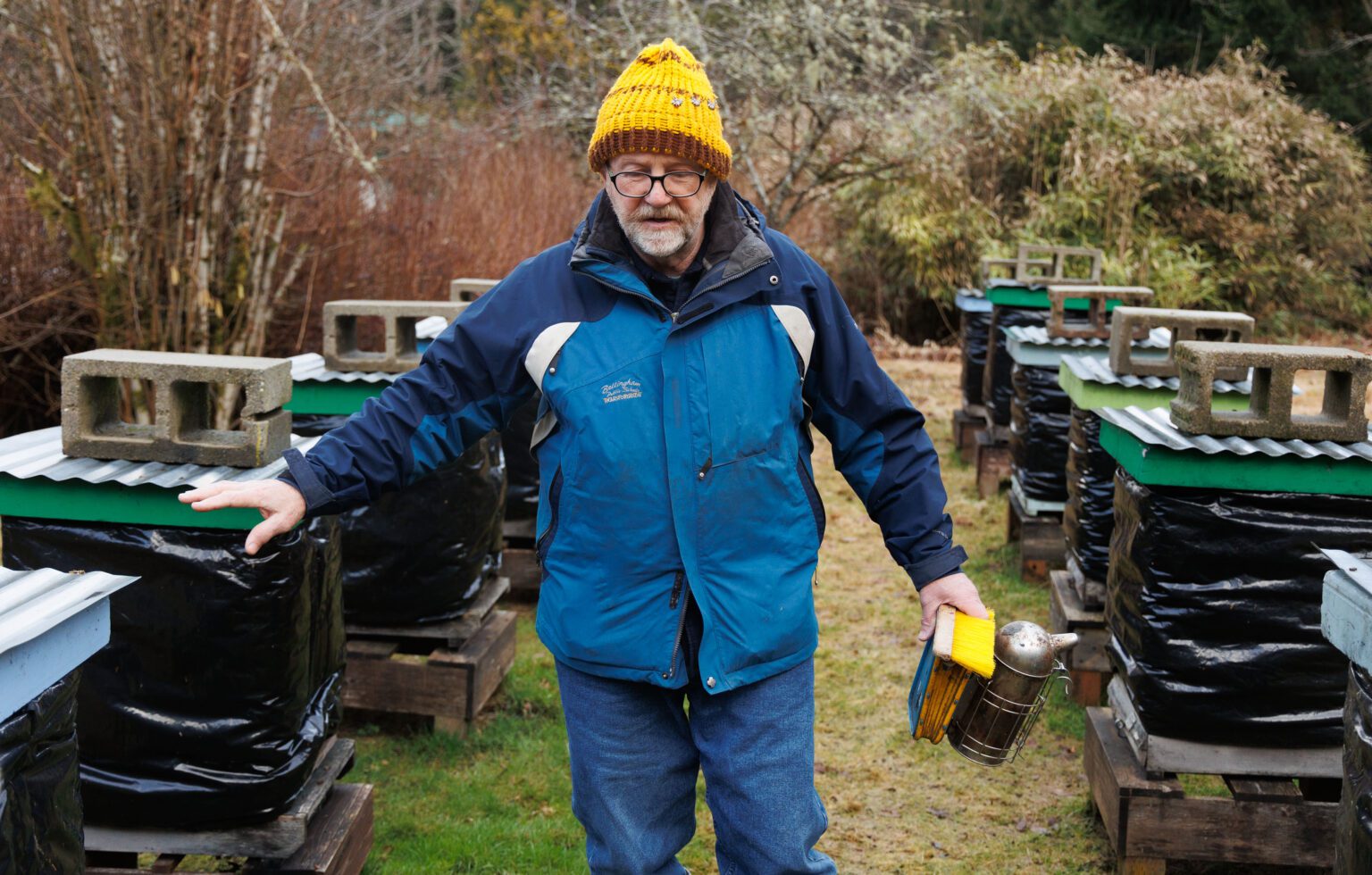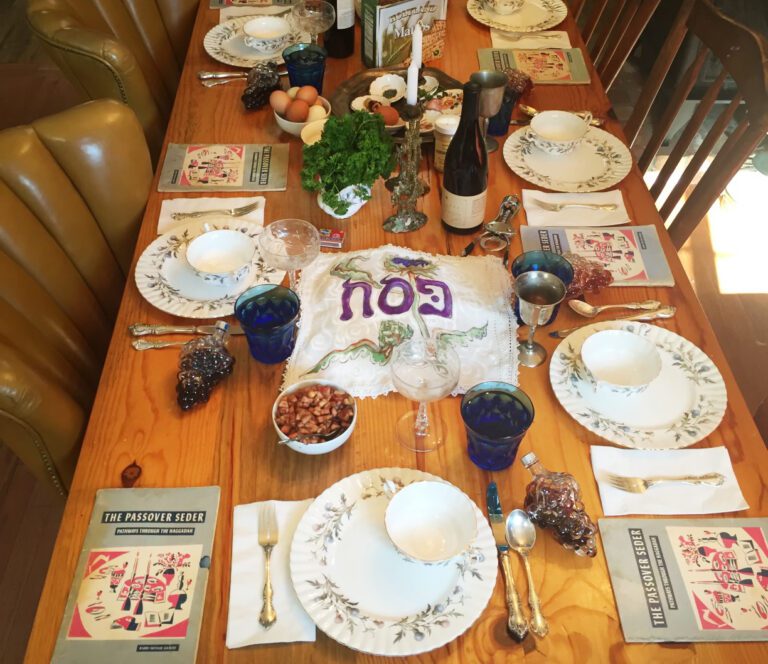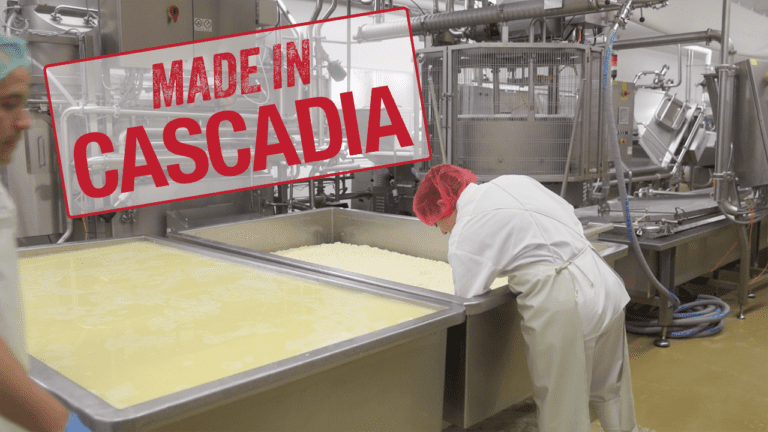Michael Jaross has been a hobby beekeeper for 17 years in Whatcom County. During that time, he has taken pride in caring for his hundreds of thousands of bees.
Since he bought his first crop of bees from California in 2005, it has grown to more than a dozen hives.
“My claim to fame locally is that since that initial little cage of bees, I’ve never had to buy bees. I make my own,” he said.
Beginning March 7, Jaross will teach an eight-week course focused on successful and sustainable beekeeping in Whatcom County. Taught at the Chuckanut Center in Fairhaven, students will learn the most essential components for beginning keepers, in both classroom and field settings.
For the first half of the class, Jaross will focus on foundational knowledge like equipment, feeding, basic biology and common challenges. For the latter half, he encourages students to purchase their first hive of bees so they can begin to apply their knowledge, and also come into class with questions about their hives.
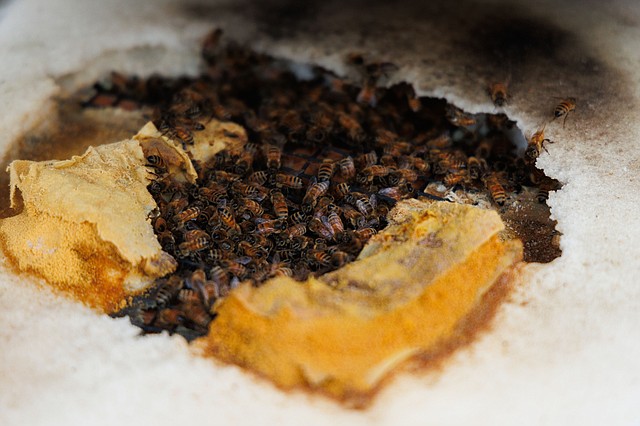 The bees in the hives of beekeeper Michael Jaross are surrounded by pollen supplements and sugar in a hive. Jaross’ bees are of a breed that limits the hive size during winter. (Andy Bronson/Cascadia Daily News)
The bees in the hives of beekeeper Michael Jaross are surrounded by pollen supplements and sugar in a hive. Jaross’ bees are of a breed that limits the hive size during winter. (Andy Bronson/Cascadia Daily News)
Bees are not originally native to Whatcom County, Jaross said. For this reason, there are unique challenges that local beekeepers face, making it more important to pay special attention to the bees’ needs.
“I try to get across the idea of total concentration, forget everything else,” Jaross said. “When you’re here in the bee yard, you’re here for the bees and no other reason,” he said.
The most prevalent local challenge for bees is the weather. Long, cold, wet and windy winters, record-setting heat waves and flooding can all create difficult settings for the insects to thrive in.
“The bees, in general, are able to cope with those conditions if you supply them with the right situation,” Jaross said.
The boxes in his hives, each containing around 15,000 bees in the winter and up to 35,000 in the summer, are set up to imitate a hollow tree, where many wild bees nest.
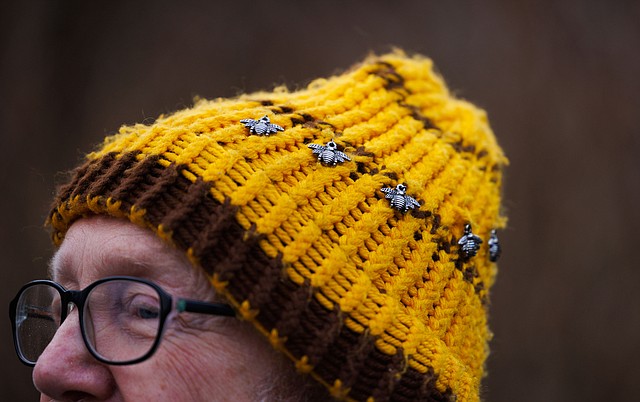 Bee charms hang on Michael Jaross’ knit hat as he talks about his bees and an upcoming class he’s teaching. (Andy Bronson/Cascadia Daily News)
Bee charms hang on Michael Jaross’ knit hat as he talks about his bees and an upcoming class he’s teaching. (Andy Bronson/Cascadia Daily News)
Sustainability is an emphasis of the class, which to Jaross means preventing diseases and parasites, keeping the hives alive through the seasons and giving bees a habitat where they can pollinate and produce honey.
He said his hives produce around 50–60 gallons of honey per year, which is enough for Jaross to sell to maintain his hobby.
Along with this, he runs a bee consulting business, Whatcom Bee Help, where he helps other keepers care for their hives and figure out solutions to complex challenges.
His interest in bees began in his youth when he would read anything in the library that had to do with the insects.
“Bees are valuable livestock, and I treat them as such with the best care I can come up with,” he said.
Before obtaining a hive of bees, it’s important to have a strong foundation of knowledge on the insects and their habits. Beekeeping can be a difficult hobby, expensive in both time and money.
“I actually try to discourage people from being beekeepers because not very many people succeed at it,” he said. “It takes a lot more input than people bargained for.”
He said beginner keepers have a high failure rate when it comes to maintaining and growing their hives.
“I encourage people to plant bee-friendly plants and bee-friendly trees in their yard,” he said. “Unless you’re really someone who welcomes a challenge and laughs in the face of failure.”

